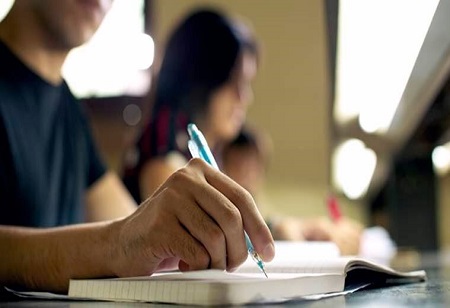Karnataka Education Department to introduce centralised annual exams for Classes 9 and 11 from this Academic Yea
 If everything goes according to plan, the Karnataka Department of School Education and Literacy will likely launch a centralised annual test for classes 9 and 11 for state board affiliated schools beginning this academic year, similar to the Gujarat and Kerala governments.
If everything goes according to plan, the Karnataka Department of School Education and Literacy will likely launch a centralised annual test for classes 9 and 11 for state board affiliated schools beginning this academic year, similar to the Gujarat and Kerala governments.
If this is implemented, Karnataka will have a centralised annual test for classes 5, 8, 9, and 11, with the question paper set by the Karnataka State test and Assessment Board (KSEAB) and the evaluation taking place at the school and taluk levels. A proposal on the subject would be given to Madhu Bangarappa, Minister of School Education, and the government for final approval.
The move to institute centralised annual tests for classes 9 and 11 is intended to prepare students for the upcoming SSLC (10th) and second PUC (12th) board examinations. Furthermore, the school education department wishes to improve high school learning outcomes, which have declined according to various assessment reports.
The education department's 'centralised examination' reform attempts to close learning gaps among high school students. However, like with classes 5 and 8, the annual examinations for classes 9 and 11 will have a 'no detention policy' if the student does not get the required passing mark.
Confirming the plan on this new examination reform to The Indian Express, Ritesh Kumar Singh, principal secretary of the school education department said, “First of all this is not a board examination.
The plan to introduce centralised examination for classes 9 and 11 is one of the many examination reforms being discussed in the interest of the students. This proposal is well thought out, student-friendly, and learning outcome friendly. This is not to overburden the students with examinations but to improve their learning outcomes so that he/she can face board examinations with confidence. We felt the summative assessment at the school level is not delivering the required results and not improving the learning outcome of students significantly. This reform may at least improve their performance in a graded manner.”
However, in March 2022 the division bench consisting of Justice G Narendar and Justice Ashok Kinagi allowed the government to conduct board exams for class 5 and 8 students studying the state board syllabus.
The court also directed the government to confidentially inform the student who has failed and to give the student the necessary training and remedial classes to improve the learning skills, without detaining him/her. The court also directed the examination should contain questions within the syllabus and not outside the syllabus. Further, when the petitioners moved to the Supreme Court on March 27, the apex court dismissed the petition and allowed the state to conduct the examination.

